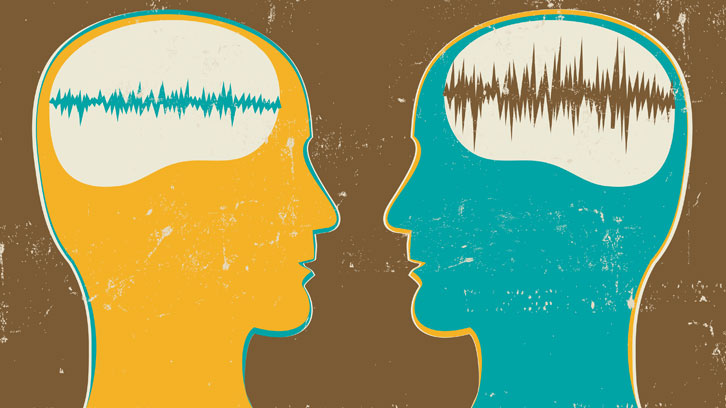Brain substrates of social decision-making in dual diagnosis: cocaine dependence and personality disorders

Author: iStockphoto/MaryLB.
Cocaine dependence is often accompanied by personality disorders, and the presence of these disorders is associated with a lower likelihood of rehabilitation. An essential characteristic of personality disorders is the poor quality of interpersonal relationships. Specifically, patients with personality disorders have a distorted representation of themselves and others, which seriously compromises the ability to understand others and leads to frustration and negative feelings about social relationships.
In this context, the rehabilitation of the addictive pathology, which depends on the indispensable co-operation of people from the social environment of the patients, may be seriously compromised. Understanding the brain basis of these deficits in social interaction in cocaine addicts should allow us to better understand this part of the pathology, often forgotten, despite its important functional consequences, in favour of the study of other disrupted behaviors, such as the lack of motivation and satisfaction when carrying out any activity other than cocaine intake.
|
|
||
| Figure 1:In this image two examples of “fair” and “unfair” offers are presented. These were shown to the participants inside the fMRI magnet. Note that although the amount offered is the same (7€), subjects tend to accept the first and reject the second offer because of the percentage this amount represents in relation with the total stack. | ||
While from a rational point of view there are no fair and unfair offers, since it is the other player who has money and who decides to share it, and therefore any offer should be considered acceptable, in general, healthy subjects also consider the emotional or affective components of the game when accepting or rejecting offers. So, subjects often accept “fair” offers, in which money is distributed more or less fifty-fifty, but reject bids deemed “unfair” in which they would receive less than 30% of the stack. The previous literature has shown, however, that patients with personality disorders tend to accept a higher percentage of unfair offers, probably because they usually consider themselves inferior to others because of their continuous history of frustrating and unsatisfactory social interactions.
We observed that, during processing of “unfair” offers and in comparison with the other two groups, subjects with cocaine addiction and personality disorders showed less activation of the insula and the anterior cingulate cortex, as well as greater activation of the lateral orbitofrontal and superior frontal and temporal cortices. The lower activation of the insula regions and the anterior cingulate cortex has been previously interpreted, in other contexts, as suggesting a lack of processing emotional information, so our results point in the direction that cocaine addicts with personality disorders have important limitations in the recognition of the emotional information encoded in the ultimatum game.
Similarly, the greater activation of frontal and temporal areas also observed in our sample can be interpreted as an attempt to deal with the conflict between the rational and the emotional aspects of the task, so that the activation of these regions down-regulated neural activity in regions responsible for emotional processing, favoring the selection of supposedly rational behaviors during social interactions, which, however, will lead to the acceptance of situations deemed as “unfair” by others, therefore perpetuating the role of social inferiority. All in all, this altered pattern of brain response during social relationships will hamper the likelihood of establishing appropriate relationships with the closest social environment, which will negatively affect the chances of rehabilitation of the patient.
This study has been conducted in collaboration with researchers from Monash University, in Melbourne, Australia, and the University of Granada. It has been published in Addiction Biology, the most prestigious journal in the field of addiction.
References
Verdejo-Garcia, A; Verdejo-Román, J; Albein-Urios, N; Martínez-González, J. M.; Soriano-Mas, C.
Brain substrates of social decision-making in dual diagnosis: cocaine dependence and personality disorders. Addiction Biology. 2015. doi: 10.1111/adb.12318.

